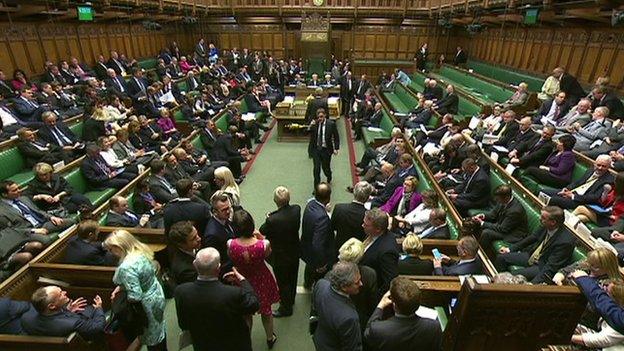EU referendum: Changes to campaigning rules announced
- Published
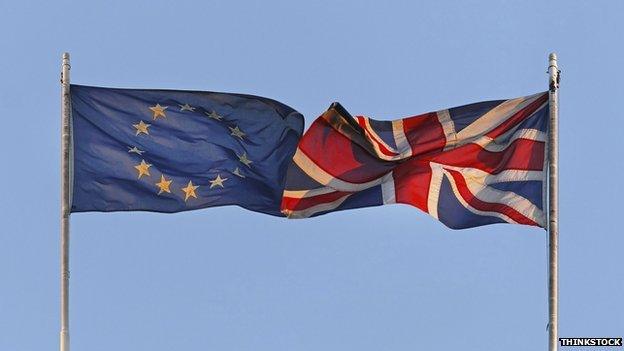
The government has agreed to change its planned rules on campaigning in the UK's in-out EU referendum, after criticism from Eurosceptic Tory MPs.
It has accepted there should be limits on ministerial activity relating to the referendum in the run-up to the vote.
But it said the government should still be able to "communicate a position in restrained and moderate terms".
Critics have argued that, as it stands, the pro-EU campaign could benefit from the "machinery of government".
The Political Parties, Elections and Referendums Act 2000, external sets out a 28-day "purdah" period ahead of any referendum, during which ministers, government departments and local authorities are banned from publishing material relating to the issue in question.
Prime Minister David Cameron claimed suspending these rules was necessary to allow the government to continue dealing with EU matters during the referendum period.
Ministers also said the purdah rules would stop them being able to defend the national interest in Brussels.

What is purdah?
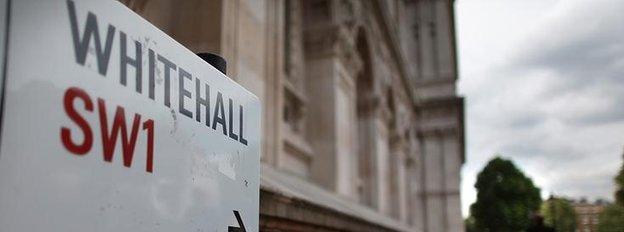
Purdah is a longstanding convention whereby governments refrain from making any major announcements in the run-up to general elections or other polls to avoid influencing their outcome.
The existing rules were set out in legislation passed in 2000. They prevent ministers, departments and local authorities from publishing any "promotional material" arguing for or against any particular outcome or referring to any of the issues involved in the referendum.
The rules, which apply to the 28 days up to polling day, do not preclude ministers from issuing press notices or responding to specific requests for information from members of the public.

Ministers have now conceded the purdah rules will be reinstated but with exemptions - such as allowing the government to conduct routine EU business, including issuing statements in response to European Council meetings and European Court of Justice rulings.
The Foreign Office said it also reserved the right to further amend the regulations, subject to parliamentary approval, to allow ministers and others to communicate on the referendum in the 28 days before the poll "using normal communications channels".
Europe Minister David Lidington said the concessions recognised the "concerns about activity in the final four weeks before the referendum while ensuring that we can continue to fight Britain's corner in Brussels on ongoing EU business and make it possible for ministers, subject to parliamentary approval, to communicate a position on the referendum in restrained and moderate terms".
'Matter of principle'
Speaking before the government outlined its new proposals, Sir Bill Cash, the veteran Tory MP and chair of the European Scrutiny Committee, said MPs from all parties felt it was "not in the national interest to use the machinery of government for the purposes of what could turn out to be support for the yes vote".
He added: "We're saying this is a matter of principle and it would apply whether there was to be a yes or no vote, if the government, for example, did change its mind."
Twenty seven Tory MPs rebelled over the issue in June, the government only avoiding defeat because Labour chose to abstain.
Acting Labour leader Harriet Harman said the government was "wrong to try and change the rules and if they're thinking again about that then so much the better".

Analysis by deputy political editor James Landale

Number Ten has significantly rowed back over its plans to allow ministers to campaign officially for EU membership in the last four weeks of the referendum.
To some, this amounts to a huge fillip for the EU "out" campaign. No longer will the "in" campaign have the advantage of asking people to vote positively for yes.
And no longer will ministers be free - in theory - to use their full offices of state to campaign to stay in the EU. As one pro-EU Conservative MP put it to me: "This Number 10 "Neville Chamberlain approach" to Tory anti-EU hardliners will in the end encourage them, not pacify them. Most of us mainstream Tories are fed up with holding our tongue while the headbangers run riot."
Yet, this is to mistake the government's intention. Ministers accept that getting rid of the Yes/No vote and partially reintroducing so-called "purdah" might make it marginally harder for David Cameron to win a referendum.
But they think the risk is worth it if it makes it harder for Tory eurosceptics to claim - amid the wreckage of defeat - that the rules were rigged against them.

The amendments to the European Referendum Bill were published on Wednesday so there is time for MPs to consider them before debating and voting on them next Monday.
UKIP head of policy Mark Reckless welcomed the rethink on "purdah" but said: "It is important that neither those in government nor in the civil service exploit their office in order to promote one side of the argument or the other."
Mr Cameron has pledged to hold an EU referendum by the end of 2017 but the BBC understands some allies are contemplating staging it as early as next April.
However, the government has ruled out holding it on 4 May 2017, the same day as council elections in England, Wales and Scotland, or 5 May 2016, the same day as national elections in Scotland, Wales and Northern Ireland.
- Published1 September 2015
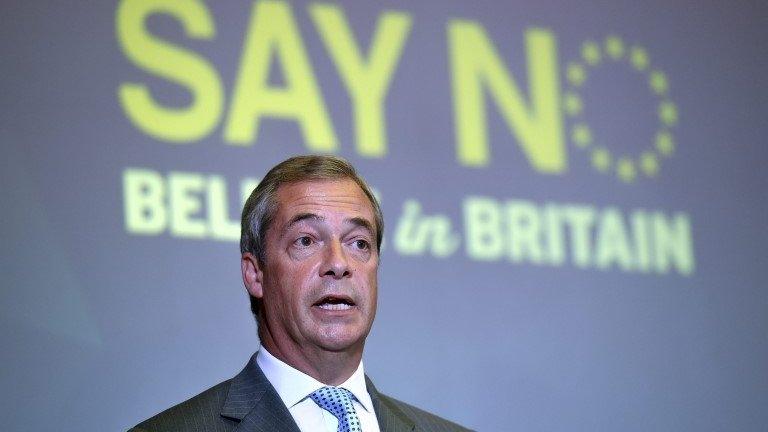
- Published1 September 2015
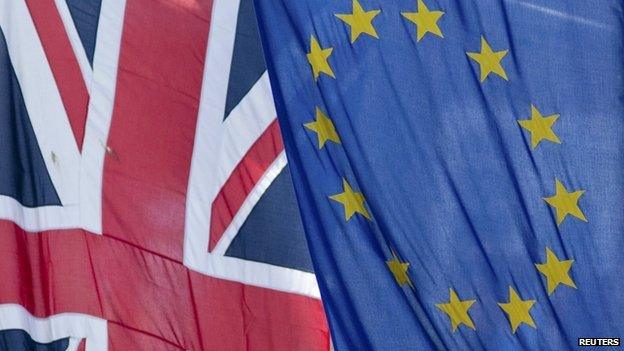
- Published16 June 2015
